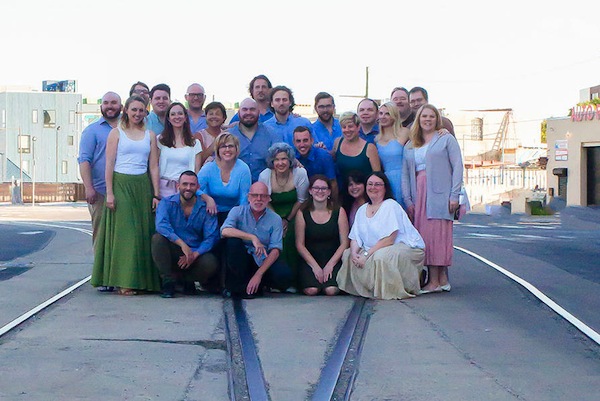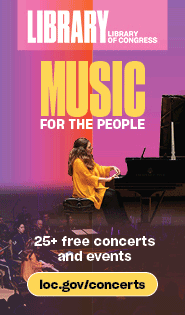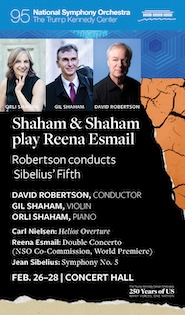The Crossing presents timely and challenging new music for voices

The Crossing performed Sunday afternoon at the National Gallery of Art.
The extraordinary rejuvenation of the free concert series at the National Gallery of Art continued Sunday afternoon with a stellar performance by The Crossing and members of the International Contemporary Ensemble (ICE). This one-hour program by the Philadelphia-based chamber choir and some of the ICE strings—conducted by Donald Nally–delivered an intense burst of recent music for voices, all of it politically charged with some burning issues of our day.
The two-dozen voices of The Crossing filled the museum’s West Garden Court with a perfectly tuned, ideally blended sound in four meaty works from the last three years. The group demonstrated its mastery of many daunting challenges, from towering dissonant structures in close harmony to modern techniques and rhythmic complexity. They did so with such clear diction that the words could be understood mostly without referring to the program. At the same time, the relentless sheen of perfection gave the aural impression of something more like a machine than human utterance.
Hissing and sharp exhalations punctuated the opening of Consent by Los Angeles-based composer Ted Hearne, as if an engine were sputtering and finally starting. Hearne has set a chaotic profusion of words, mixing together liturgy from wedding ceremonies with all-too human love letters, and even text messages used as evidence at the rape trial of students from Steubenville High School in Ohio.
The piece grew to an all-choir shout of the phrase, “Declare your consent,” after which the rapid overlapping of words made comprehension impossible. Like a klaxon alarm, the group’s impeccable high sopranos soared over this tumult on long notes in the stratosphere, until the piece came to rest on the question, now layered with negative meaning, “Who gives this woman?”
Caroline Shaw’s monumental Seven Responses project for The Crossing, on the subject of human suffering, was represented by one excerpt, “To The Hands.” At its center is an affecting phrase from the third movement of Dieterich Buxtehude’s cantata cycle Membra Jesu Nostri, about the wounds in the center of Jesus’ hands, the words of which Shaw teases out to maximum effect. Shaw shifts the focus to the suffering of refugees, with a movement adapted from Emma Lazarus’s poem “The New Colossus,” familiar from its quotation on the Statue of Library.
Minimalist repetitions and popular idioms run through the other movements, all vignettes about the struggles of displaced people. The piece becomes too literal in the fifth movement, where the choir members simply shout out “global figures of internally displaced persons,” in a way that was more sterile than affecting. There, as in other parts of the piece, Shaw’s writing for the string quintet worked in tense conflict with the voices, requiring stamina from both vocalists and instrumentalists.
In “What It Might Say,” from last year’s Jeff Quartets, Hearne’s harmonic style was even more reminiscent of jazz-vocal close harmony groups like Manhattan Transfer. Metrical shifts disrupt a repeating chord pattern to words from a poem by D. W. Winnicott imagining what a baby might say to its mother. Conductor Nally’s precise gestures held the performing forces together through all the shifts of character and beat.
Least satisfying was David Lang’s the national anthems, which sets a lengthy text cobbling together phrases from national anthems of countries all around the world. The idea of the piece is alluring, leading Lang to find an insecurity about the fragility of freedom hidden in every nation’s identity. The music grows tiresome in its repetition, however, with a disjointed melody, sung in unison in the first movement, quite reminiscent of music at the heart of Lang’s Little Match Girl Passion, returning over and over in slightly different guises.
Lang’s focus on treble sounds did not help the lack of variation. Short phrases of different lengths provide the basis for breaking up repeated melodic and harmonic patterns. At over 20 minutes, the effect was monotonous and a little maddening, which was possibly the point, as indicated by one of the final lines: “our song — echoing over and over again.”
The next free concert at the National Gallery of Art, featuring Mantra Percussion performing Michael Gordon’s Timber, is 3:30 p.m.Sunday. nga.gov




Posted Nov 15, 2017 at 6:14 pm by Laura Youens
Fascinating review, Charles.